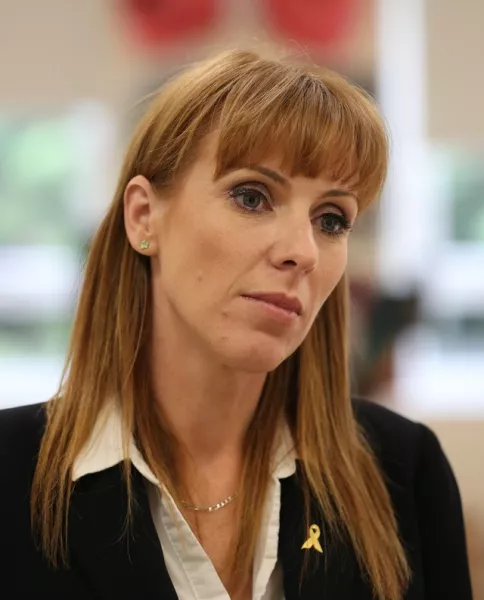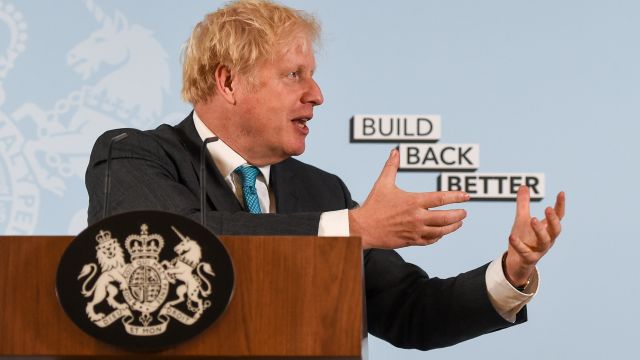Boris Johnson said he “misspoke” when he was asked to explain the new rules, which were announced on Monday and will come into effect from midnight.
Deputy Labour leader Angela Rayner claimed Mr Johnson did not understand the new regulations, set to put a ban on households mixing in private and also social settings, in Northumberland, Newcastle, Gateshead, North and South Tyneside, Sunderland and County Durham.
When asked by reporters to clarify whether people could meet in a pub garden, an issue one of his ministers admitted she did not know, Mr Johnson said: “In the North East and other areas where extra-tight measures have been brought in, you should follow the guidance of local authorities but it is six in a home, six in hospitality but as I understand it, not six outside.”
This is vital to control the spread of coronavirus and keep everyone safe. If you are in a high risk area, please continue to follow the guidelines from local authorities. (2/2)
— Boris Johnson (@BorisJohnson) September 29, 2020
Advertisement
Mr Johnson later tweeted: “Apologies, I misspoke today. In the North East, new rules mean you cannot meet people from different households in social settings indoors, including in pubs, restaurants and your home. You should also avoid socialising with other households outside.
“This is vital to control the spread of coronavirus and keep everyone safe. If you are in a high risk area, please continue to follow the guidelines from local authorities.”

Ms Rayner had earlier said: “For the Prime Minister to not understand his own rules is grossly incompetent.
“These new restrictions are due to come into force across huge parts of the country tonight.
“The Government needs to get a grip.”
It followed earlier confusion caused when Education Minister Gillian Keegan, appearing on BBC Radio 4’s Today programme, was asked if people could meet in pub gardens.
Ms Keegan said: “I’m sorry I can’t clarify that.
“I don’t know the answer to that question but I’m sure they can find out the answer to that question.”
Pressed on how people are meant to keep up to date with the latest restrictions when ministers cannot, she said: “I’m sorry I can’t answer that question.
“I’m sure there are many people who could.
“I don’t represent the North East.”
The Prime Minister’s spokesman said the details were still being finalised.
He said: “The Department of Health are setting out the full details of the steps they announced last night later on today.”

Pressed about the confusion, the spokesman said: “It is the case that events are moving at speed and it’s right that we can move quickly in relation to localised outbreaks working with local leaders to ensure that we have steps in place to help to slow the spread of the virus.”
In response to local leaders’ criticism of the Government for not giving them enough advance notice, the spokesman said: “I think that the Department of Health have been engaging with local authorities, local public health bodies for a number of days in advance of the announcement being made.”
The leader of Gateshead Council said he was not warned that new restrictions were to be imposed before the Health Secretary announced them.
Martin Gannon told BBC Radio 4’s Today programme: “I got inundated with telephone calls and emails last night from people asking, ‘Can we do this, can we do that?’ and actually I didn’t have the precise wording of the regulations in front of us.
“So it is a bit chaotic the way these things happen, Nick (Forbes, Newcastle City Council leader) was quite right to be annoyed about that.”
The tightened restrictions were being brought in for the North East, despite the North West having higher infection rates.
The Department for Health and Social Care was approached for comment, as were several northern Conservative MPs, but no explanation was available.
According to figures calculated by the PA news agency and based on Public Health England data, eight of the 10 boroughs with the highest rate of new cases were in the North West, with two in the North East.
They were Knowsley with 279.7 new cases per 100,000 people for the week to September 25, Burnley (269.9), Liverpool (262.2), Newcastle upon Tyne (238.1), Bolton (231.6), Pendle (219.3), Halton (217.1), Manchester (207.3), Hyndburn (204.8) and South Tyneside (196.7).







